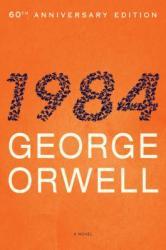
Although the year 1984 has long since passed, the reality created in Orwell’s novel 1984 contain aspects that our society is beginning to show. 1984 follows a society where the world is ruled by 3 superstates: Oceania, Eastasia, and Eurasia, each of which have a totalitarian english socialism government. The government of Oceania has surveillance on every citizen through monitors called telescreens that enable them to hear and see what every person is doing and every citizen is required to have a telescreen in
their homes. This enables them to see if the citizens are committing “thoughtcrime” and if they are, the thought police kidnap the person and erase them from existence. Winston Smith is our main character with a quiet rebellion against the totalitarian government of Oceania. He believes that he is an individual and should be allowed to have his own freedom. As Winston tries to avoid being erased from existence and maintain a romance with the love of his life Julia, the government slowly closes in on his treason. This is one of my favorite novels and a masterpiece by Orwell as it shows how a society with a controlling government creates fear and false order for the citizens. Aspects within the novel are present in our own government today, so who is to Orwell’s predictions aren’t slowly but truly becoming a reality.
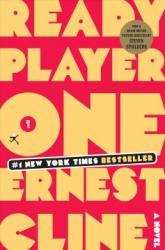
I don’t know where to start with this review because there are a lot of different elements of the novel to discuss. The reason why I rate Ready Player One four out of five stars instead of five out of five is the overwhelming amount of 80's references mentioned in literally every line that honestly only further bored the audience. The references to Star Wars, Indiana Jones, Back to the Future, Dungeons & Dragons and more were tolerable because they were iconic - something an individual born 20 years later still understands. Then, Cline writes paragraphs on Atari consoles and Black Tiger or Joust games which just isn’t relate-able for the majority of the audience the novel is targeting (which is why I assume the director replaced the Joust scene with a car race in the movie). But the dominant issue with Cline’s writing is not even necessarily the amount of references but the fact that he explains every single one. At some points, I thought about how I might’ve read a Wikipedia article for the same informational effect. There are plenty of plot twists to contribute to a surprising manner regarding both the characters and the video game - I was never bored with the plot. Ready Player One is one of the many futuristic dystopian sci-fi novels everyone in this generation reads - which is why the 80's references bothered me. I don’t think this is the type of novel most adults born in the 60's or 70's are going to read, yet Cline tries to appeal to them anyway.
Reviewer Grade: 11
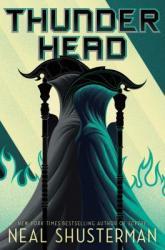
Hey y’all. It’s been a while since my last book review, so I’m going to talk to you for a minute about Neal Shusterman’s Thunderhead. Minor spoilers for Scythe will likely occur throughout, given that this is book #2 in trilogy.
Thunderhead is set in a future world of plenty, where death and poverty and illness and war have been eliminated by the Thunderhead, an artificial intelligence developed from what we currently call “the cloud.” Every human has nanites in their blood that reduce pain from any injury, and slowly repair any damage. And if by some unfortunate accident, you happen to die, a drone will recover your body and take you to the nearest facility where you can be revived (your first one’s free!).
However, in order to curb overpopulation, the Thunderhead allows for the Scythes. Scythes are an order of highly skilled assassins (of sorts) who exist to keep humanity’s numbers in check. They maintain a quota of gleanings, permanent deaths for a chosen few to remind people of the mortality that the entire race once faced. Anyone who is gleaned by a Scythe earns immunity for their family for a year.
Book one in the series, Scythe, follows Rowan and Citra, two young teens who are chosen as apprentices to Scythe Faraday, who intends for one of them to become his successor. Their training leads to the widening of schisms within the Scythedom, and soon they find themselves pitted against each other over the right and wrong ways to go about their duties of gleaning.
Thunderhead picks up several months after the events of Scythe, with Citra now serving as Scythe Anastasia, and Rowan operating in the shadows, gleaning other Scythes who he deems to be immoral and corrupt. Dubbed Scythe Lucifer, he lives a life on the run while Anastasia is honored for her rather benevolent take on gleaning (giving her victims a month’s warning, and allowing them to choose the means by which they will die).
This book introduces more perspectives from the Thunderhead itself, giving the reader powerful insight into the all-powerful AI’s thoughts and concerns. We also meet Greyson Tolliver, a young man who has devoted his entire life to serving the Thunderhead, and has his loyalty tested to the extreme. While this can feel like it’s drawing attention away from Rowan and Citra, it contributes to the worldbuilding. And while Scythe had a phenomenal dystopian feeling, there were many questions left unanswered that are picked up in these chapters and monologues.
Now Anastasia and her current mentor, Scythe Curie, have been targeted by a mysterious attacker who seems intent on ending them both permanently, while Rowan grapples with the consequences of his actions as Scythe Lucifer. The Thunderhead muses on the Separation of Scythe and State, lamenting its decision to refrain from interfering with the actions taken by members of the Scythedom, finding clever ways to work around the various safeguards that it has installed in society (and maybe finding out more than it was ever meant to know).
All in all, Thunderhead is a powerful followup to Scythe, a worthy companion and, to my simultaneous joy and rage, the second book in a trilogy. Book three is due in 2019, and I can’t wait to see how this all wraps up.
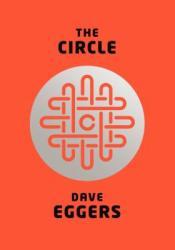
When I saw the movie adaptation of this book, I felt like the presentation of this somewhat interesting idea was already dated by about five years. This made me curious if the book was any better. As is probably no surprise to anyone, the book was much better. Sure, the movie cut a few things from the book that I thought were a bit too unnecessary (all the “sex,” that is) or underutilized (the “Calvin” character), but the book really hits at the intensity of the internet-addicted generation. I would even go so far as to say The Circle is the modern version of 1984 .
I’m somewhat torn when it comes to the message presented here. I understand how trying to stay on top of millions of e-mails, and thousands of social media updates can be utterly overwhelming. I also agree that a lot of ideas that seem to be beneficial to society will have the removal of personal privacy as an adverse side effect. However, the vehemence that people participate in the world does bring up a good point about apathy. Granted, I don’t think we should be nearly as extreme in our “oversharing” on social media, but if the majority of success is just showing up, then why do so many people find themselves too busy to even participate? Do they not want to engage with their fellow humans?
I did appreciate how the transition from utopia to dystopia went almost entirely unchecked. The main character’s journey really helped to show how the addicting nature of online interactions and instant feedback can get out of hand. From documenting our lives to searching for information to even searching for love (of which internet dating wasn’t included in the movie), the internet is a powerful place. If anything The Circle highlights how dangerous a true democracy can really be, particularly if the minority opinions are known at each decision point.
A terrifying look into our digital mirror, I give The Circle 4.5 stars out of 5.
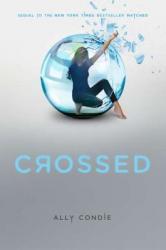
This is the second time I read Crossed and after I finished I took to
Goodreads to see some other reviews. What I saw most of were individuals
saying that Crossed was not as action packed as Matched and that the audience
was waiting for the majority of the book for something to happen; for Cassia
to see Xander, to leave the Society, to start searching for Ky, to know what
happened to the Anomalies, to get to the Rising... I was eager too for all of
those things to happen but I did not find the book boring but rather
suspenseful. If the book were boring then the new characters Cassia and Ky
met might be uninteresting but I found myself fretting over Eli, annoyed with
Indie, heartbroken alongside Hunter, and sympathizing with Vick. I did not
think the different groups traveling through the canyon called the Carving
was agonizing in any way except positively - I just wanted to get to the part
where Cassia and Ky met up already but I was also satisfied with the other
events such as the deaths, learning about the tablets, the outing with
Xander, and more. When some others said Crossed was not action packed I think
they meant there was a lack of the Society’s interaction, no one was being
monitored or reprimanded for an Infraction but honestly I was relieved and
not frustrated with that at all. There were still plenty of plot twists
throughout the novel that made up for the lack of the Society and I was
curious about all of them. In fact, because of all the conflict and
unfairness the Society put the characters through in Matched I did not want
the Society in this book at all and was curious to figure out what was beyond
the borders of the Outer Provinces. One thing I will say is that this is one
of those stereotypical dystopian books with a love triangle but the book
begins to give some closure as we see which boy Cassia is leaning towards
permanently. Cassia’s goal besides locating Ky is to locate the Rising (the
name of the rebellion against the Society) but everything is rushed. Her next
task is given to her immediately, none of the major leaders are met, and any
information about the Rising is hardly given at all. The author spends the
entirety of the book in the Carving and the last three pages are introducing
the rebellion. Because of the anticlimactic ending, I rate this book 4/5
stars. I am planning to reread Reached because the lack of a satisfying
ending only made me want to know what happens next more
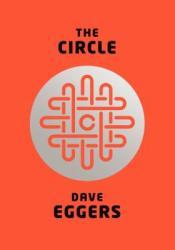
The only reason I read this book was because of the movie starring Emma Watson and Tom Hanks but I'm one of those who [for the most part] read the book first before watching the movie because we all know that books are always better and have more details than the movie versions.
I've been on the fence about deactivating my Facebook and Twitter accounts and signing up for Instagram or keeping my blog, Ravelry and GoodReads active since I use Ravelry and GoodReads mainly as online databases for my yarn craft and books respectively so I won't have to create an offline database from scratch and my blog as a way to share things that I enjoy and my book reviews like this one. The Circle by Dave Eggers definitely showed some pros and cons to going "off the grid" to quote Mercer and some pros and cons to being online to keep up with family and friends and social media is good way to reconnect with old friends especially if you have no way of contacting them because your address book hasn't been updated in a long while.
Enter Mae Holland who hasn't used her social media account in a while and ends up working for the Circle, a tech company who is all about sharing [everything] and being social online and offline and unifying everything into one account. I rated this book 4 stars not because it's really good but mostly because the author managed to make me feel something and made me think. When Mae first started working at the Circle, I felt as stressed out and exhausted as Mae felt while learning about her new job and balancing her work-related duties as well as her "social" duties and the constant need to "smile," "frown," and "zing" can be overwhelming for someone like me who likes to moderately share things online. Yes, I do believe that there are things that should be kept private and still do even after reading this book.
I don't think it is healthy to spend so much time online "smiling," "frowning," and "zing-ing" what other people share to the point where you no longer have time to live your life in the real world. And changing your opinions because you don't like getting "frowns" is not being human. Being human is about having different opinions and thoughts and it shouldn't matter if your opinion is unpopular because it is you. The way it is presented in this book is that slowly, everyone in the world is of one mind, one opinion which is already happening in the real world. People get shamed, hated on or bullied online when you express sentiments that are not in line with the sentiments of others. And this mentality should stop.
There are some aspects of unifying databases from this book that I liked the idea of. An example would be medical records that way when you switch medical providers or during medical emergency situations, all your records can be found in one centralized system/location to make it super efficient for the medical team to give you the right medication or treatment as well as if you're unconscious, there's a way to alert your medical/care team to send help. While it is also great to get real time results on polls and surveys, being forced to vote by suspending all electronic/computer/online activities until you've voted is wrong in the sense that people have the right to vote or not vote. Sure it will help a lot if everyone voted but to make it mandatory like what the Circle suggests violates the right to decide whether to vote or not. I'm on the fence about humans getting micro-chipped like most of our pets are micro-chipped because I personally don't want everybody in the world to know where I am. I only want my I.C.E. (In Case of Emergency) contacts to know where I am and that's about it. There's more examples in this book that I'm either on the fence on or completely against the idea of but I have to end it here otherwise, this review will be as lengthy as the novel itself.
Moving on to the general overview of the plot. It's believable to some degree and I can see the parallels to the real world especially on the social media aspect and we are somewhat slowly getting there on the other technological aspects. The pacing of the story is slow to moderate and sometimes it makes you think if there's any point to this whole thing. The whole time I was listening to this book, I was waiting for a really cool plot twist or a big revelation or a big self-discovery, but unfortunately, none of those happened. There was a revelation towards the end but it was a bit of a let down because somehow, at the back of my mind, I already knew that.
As for the characters, I feel like they're not as well-developed as I'd hoped. There's no real depth to Annie, Dan, Jared, the three wise men, Francis, or any of the rest of the characters, including Mae (more on that, later). It feels like these other characters are there to either add drama in the case of Francis, to move the story along in the case of Dan, Jared, the three wise men, etc., and as proof of validation and someone to vent to as in the case of Annie. As for Mae, I somewhat resonated with her in the beginning but as the book progresses, her character became less real and more fake in the sense that the Mae readers liked in the beginning slowly disappeared as she became "one with the hive" err Circle and lost her own individuality. Another thing that was disturbing about Mae was in the end, while visiting her catatonic best friend, Annie, she looks at one of the monitors scanning Annie's brain waves and wonders what Annie's dreaming/thinking about while in a coma and decides that people's thoughts should be accessible to everyone and that "the world deserves nothing less" which to me, is frankly, quite disturbing.
Finally, the narration. Dion Graham did a wonderful job narrating/reading this book even though this book follows Mae's perspective and there's none of that high-pitched voice trying to sound like a woman/girl.
In conclusion, if you are someone who shares everything online then you might enjoy this book and if you are someone who is on the verge of deactivating all of your online and social media accounts, you might find extra reasons in this book to permanently go offline. If you are someone who likes to see characters evolve into a better version of themselves, this book is not for you.
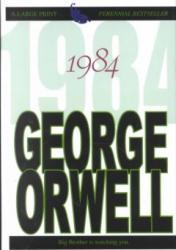
1984, written by renowned author George Orwell, a pseudonym for Eric Arthur Blair, follows the protagonist Winston Smith set in what Smith believes to be the 80s in London. In fact, Smith is not sure of anything anymore, definitely not the exact year or what happened to his family or who the mysterious dictator called Big Brother is or who his state is at war with. Eurasia, right? No, must’ve been Eastasia... All Smith knows are the mottos of each of the ministries that form the government in Oceania, where London is. WAR IS PEACE. FREEDOM IS SLAVERY. IGNORANCE IS STRENGTH. He is told what to think, what to say, and what to do for nearly every part of his life. His government banks on strict organization and dire consequences for disobeying the rules. 1984 is an interesting read that set the bar for dystopian novels, defining inefficient governments from real life examples.
The novel is more realistic being inspired by Orwell’s hatred for totalitarianism and the events of World War II. I recommend 1984 to anyone curious about examining different types of societies, their standards and how those effect the population. The novel is fairly political and examines rebellion, although not as face paced as typical young adult reads. 1984 allows for an in depth examination of the character’s internal conflicts, Winston is one of the more detailed and complex protagonists because there are many parts where he cannot he sympathized with due to his lesser characteristics. The setting is clearly presented in a more world-building way than just giving out straight information. I was especially pleased, surprised, curious, and angry throughout the progression of the story.
Overall, I did enjoy this book more than most others, but the fact that Winston does not form any significant relationships until the second part and is the primary person talking, I was relatively bored during the middle chapters.
Reviewer Grade: 11
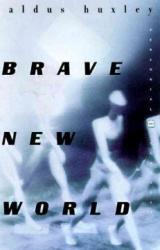
Among one of the first Dystopian genre novels ever published, Aldous Huxley’s Brave New World questions the extent at which technology could potentially control society. Set approximately 632 years after the creation of the Model - T, a World State now controls society with the intent on eradicating personal thinking and individual creativity. With a new system called the Bokanovsky process, the World State utilizes the idea of Henry Ford’s assembly line to produce thousands of nearly identical embryos that will grow up to work for the State. All embryos are conditioned to be in one of the 5 castes: Alpha, Beta, Gamma, Delta, Epsilon; with Alphas destined to control the World State and Epsilons to perform menial labor. When Bernard Marx, Helmholtz Watson, and John decide that something is wrong within this “perfect” society, they take it into their own hands to expose the World State and stop this flawed Utopia. Huxley’s novel, written in only 4 months, is phenomenal because it challenges the ideals of the limits to which technology can override nature. With the novel being published in 1932, Huxley questions practices that were uncommon and unrealistic back then, but are slowly becoming a reality now as our society leans more and more towards technological innovations. I recommend this novel to high school readers, especially those interested in the Dystopian genre, since this is a perfect example of a Dystopian Utopia.
Reviewer Grade: 11
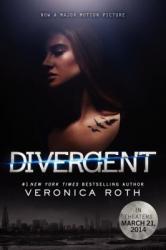
When I first picked up this book, I was skeptical, because I'm not normally a fan of dystopian novels. But I LOVED this book, I read it in three hours, I could not put it down. This fast paced thriller drew me in. When I was finished I found my self picking it up various times and rereading my favorite parts. I would for sure recommend this book to everyone I know.
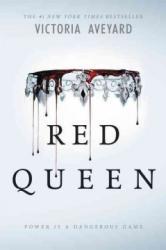
In this dystopian novel, Reds (those with red blood) live like peasants and servants to the god-like Silvers (those with silver blood), who live in luxury and royalty, possessing mind bending powers that make them superior. While the Reds slave away, Silvers feast. Mare, a Red, finds herself right in the middle of it all when she is surprisingly allowed to work in a Silver palace. In a freak accident, Mare finds out something about herself… she possesses one of the many god-like powers, like the Silvers.
And not just any power, a power that has never been seen before. She is betrothed to marry a Silver Prince and forced into a Silver life. She embarks on a quest to find out who she really is. This book, I think, deserves a 4 out of 5. The plot was amazing, but several things kept it from a full score.
First of all, the author’s attempt at creating a heartfelt and loving romance failed miserably, leaving me gagging from the sappiness of it all. On that note, I felt like the main character, Mare, was too dependable on her lover. However, I did like the overall plot and outcome, and I didn’t regret reading this book.
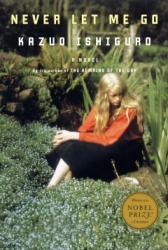
Kathy isn’t a normal kid, and neither are any of her friends. They were all cloned, and someday, their vital organs will be harvested until they die. But for now, they will grow up in a secluded boarding school nestled in a corner of England, called Hailshem. Hailshem is idyllic: creativity is nurtured, friends are everywhere, and there are supported teachers. Kathy retells her experiences as she looks back on her life in preparation for her organ donations. And…. that’s basically it. It sounds like a really interesting concept for a book, but the author completely butchered it! His writing drags on and on, and completely bored me to death. If he had written it better, or if someone rewrites it, the book would be fascinating. But the writing style is so dreadfully dull. I warn you-- do not read this book! You will seriously regret it if you do!
Reviewer Grade: 7
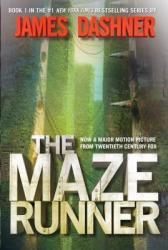
The book The Maze Runner by James Dashner is a fascinating book. It places the reader in a semi- dystopian world. The time for this story takes place in the late 2200s (Maybe. Dates tend to come in this format 231.5.4 or May 4, 231.). As a disease ravages the world outside turning people into savages, the main character, a 16 year old boy named Thomas wakes up in a swinging box having no recollection of his life before that point. He remembers nothing except his name. Half an hour later, the box opens and Thomas meets the Gladers (as they call themselves because they live on a glade). All of them are male. They are all surrounded by towering walls and giant gates that shut whenever it gets dark. The giant gates lead to a seemingly impossible maze with moving walls and creatures that threaten to hurt them. These creatures are called Grievers and they are hideous bulbous creatures with concealed blades and needles. Whenever someone gets caught by one of the Grievers, they are Stung, which has a lot more meaning than getting stung. When someone is stung, they experience horrible pain and occasionally go mad. The Gladers have people they call Runners who go into the Maze every day to find new passageways. They receive food and water and antidote for Stung victims at the same times every day. Someone new arrives once a month and they are always male. All that changes when someone new arrives two days after Thomas and she is female. Then supplies and antidotes stop arriving.
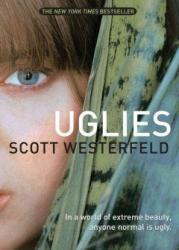
The novel “Uglies” by Scott Westerfield is an adventure into the future. In this futuristic society, everyone is “ugly” until they turn 16. When they turn 16, they get surgery to become pretty and go live in the pretty world. The story is focused on a girl named Tally. She has been anticipating the day of her 16th birthday ever since her brother went to the world of pretties. But Tally wasn’t the best ugly out there. She broke some rules before her 16th and might have to face consequences for her actions. This includes losing the privilege of becoming pretty. Everyone in her world wants to become pretty, but she happens to meet a friend who doesn’t want to change. She and this girl are the last ones to turn 16. I recommend this novel to people who enjoy scientific fiction and adventures. This book sucked me right in. There are 3 more in the sequel and I ended up buying and reading all of them!
Reviewer Grade: 10
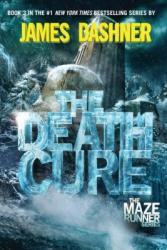
If ever there was proof that not every book should have a trilogy, it’s The Death Cure. Sure, The Maze Runner was an interesting concept, but it brought up a lot of questions. None of these questions were answered by the end of the series since most of the focus was on random action sequences rarely driven by the main characters’ actions. If action wasn’t the focus, then the loose and unbelievable “love triangle” certainly was. In the end, I had no connection to the characters, which was why I was mostly unaffected by some of their deaths.
The real problem with The Death Cure (as well as its predecessor, The Scorch Trials ), is how much “fluff” is in the story. The Maze Runner worked because there was a concrete objective: escape the maze. In the two books that followed, what was the goal? Was it to defeat WICKED? If it was, then the characters didn’t seem too committed to it, since they kept having to deal with obstacles that randomly put themselves in their path. Consequently, the second and third parts of this trilogy could have probably been cut down into one book and saved the reader some time.
Unlike most trilogies, which provide at least some semblance of closure, The Death Cure leaves all its questions unanswered and merely tries to tack on an ending as a Band-Aid. This hand-waving approach was unsatisfying because we still don’t know why running immune subjects through a deadly maze would lead to a cure. We don’t know what the greavers (or any of the other “faceless enemies”) are, or what their purpose was. We don’t know why Teresa was so illogical and vague. Its series like this (which are only popular due to the “Young Adult” craze) that confirm my bias against this “cash-grab” genre.
An unsatisfying end to a trilogy that should have been one book, I give The Death Cure 1.5 stars out of 5.
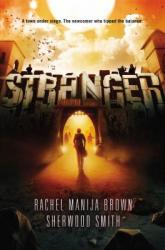
The book Stranger, by Rachel Brown, tells of a post-apocalyptic town called Las Anclas and its citizens. The people in the world have been affected by a solar storm, which has caused them and the environment to develop mutations called "The Change." These effects can either harm or benefit the people.
The story is told through the perspectives of many other characters, and it gives a lot of insight and information on the characters pasts and thought.
This allows for excellent foreshadowing, which is one of the biggest strengths in the book. The novel describes the dystopian world mainly through the eyes of a young teenage boy named Ross Juarez, which develops the plot, romances, and details of the town and its people well. The book also places action nice and evenly throughout the story, so that it can focus on the story telling and background of the town and characters in other parts.
Overall, the book Stranger has been one of my favorite reads, and I'd recommend it to people who like dystopian worlds, action, and adventure books.
Grade: 8
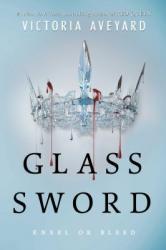
This is the second book in the Red Queen series. Please read the series in order to avoid serious confusion. The genre of the book is dystopian and the book itself is full of action. Also there is lovey-dovey elements that seem to happen in every book where the main character is a teen girl. Like Red Queen the book is unpredictable and of course has a cliffhanger at the end.
Another one of my favorite books that will hold your attention from start to finish.
Reviewer grade: 8th
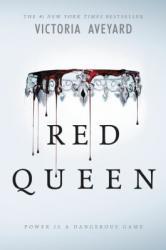
An amazingly written book Red Queen will keep you on your toes. It is a dystopian book (a relatively new genre of books) and is filled with action and betrayal. It is the first book in a four book series (and the books are huge). Even though it has a lot of action in the book, it does have some lovey-dovey elements since the main character is a teenage girl. Completely unpredictable and does have a cliffhanger at the end. This is one of my favorite books of all time.
Reviewer grade: 8th
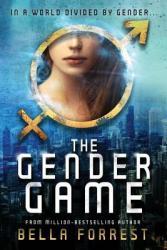
Powerful women dominate the world...that is at least in the country Matrus. Across the toxic and poisonous Veil River lies Patrus. In contrast to Martrus Partrus is ruled by men. Women may not leave the house without her husband, and are under legal custody of the man. Though Matrus doesn't treat their men much better. The few men in Matrus have no power, but are free.
Violet Bates a Matrian citizen is given an opportunity to cross into Patrus or alternatively sentenced to death. With a rough past Violet must make a hard decision. Her fate lies in The Gender Game. This book is a dystopian romance nothing new on the surface. We have already seen that in Hunger Games and Divergent. What Bella Forrest does is create a complex environment which you can't help but be engulfed by. Not only that but The Gender Game shows perspectives of citizens of both Matrus and Patrus. You should read this book if you are a lover of dystopian books and suspense. Though I must say the first half of the book wasn't all that suspenseful but it perfectly set you up for the rest of the series. I'm sure you will find this two complex societies thrilling and it will be worth the read.

As I read The Maze Runner , I couldn’t help but shake the feeling that the story was meant for a video game instead of a novel. The Scorch Trials merely confirms my suspicions. I mean, who in their right mind would acronym their organization with WICKED? While the first book in this series had a pretty straightforward goal (escape the maze), the sequel made no sense whatsoever.
OK, these kids escaped the maze, but then what? The idea of traveling to the “safe haven” seemed to come so late in the plot that it almost felt like an afterthought.
Concerning the characters, the main ones are still there, but so many of the ancillary minor characters are so forgettable as to be practically useless.
Brenda was added into the mix merely to elicit a “love triangle” between the two love interests of the first book, but it just felt forced . . . like everything else in The Scorch Trials. Survival doesn’t make for a great motivation unless there’s something to hope for in the long run. I never got much of a sense of any of the characters’ motivations since around every turn the world they found themselves in was trying to kill them in ridiculous and unbelievable ways.
I think what turns me off about this series the most is that the “hand of the author” is obviously visible throughout. Nothing feels natural, and the exposition is spotty and done in huge chunks based off of a lull in the action instead of as a result of it. Each time the characters face a new challenge, there seems to be no weight behind it, since most of the “challenges” are basically to generate a conflict between the characters and the unseen organization while providing no new information as to what any of it means.
A book that should have been a video game, I give The Scorch Trials 2.0 stars out of 5.
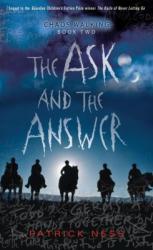
The Ask and the Answer is the second book of Patrick Ness's Chaos Walking series. In this continuation, we see the original characters Todd and Viola venture farther from home as they try to outrun the lies of their previous lives. This book is a wonderful mix of brilliant, sad, courageous, and painful. As soon as I finished this book, all I wanted to do was pick up the next one. Ness's writing style is unique, and the characters are relatable and real. The events that transpire throughout The Ask and the Answer provoke a wide range of emotions, which makes it engaging. I strongly recommend this book to anyone who has read the first Chaos Walking book, which is called The Knife of Never Letting Go.
Reviewer Grade: 11


